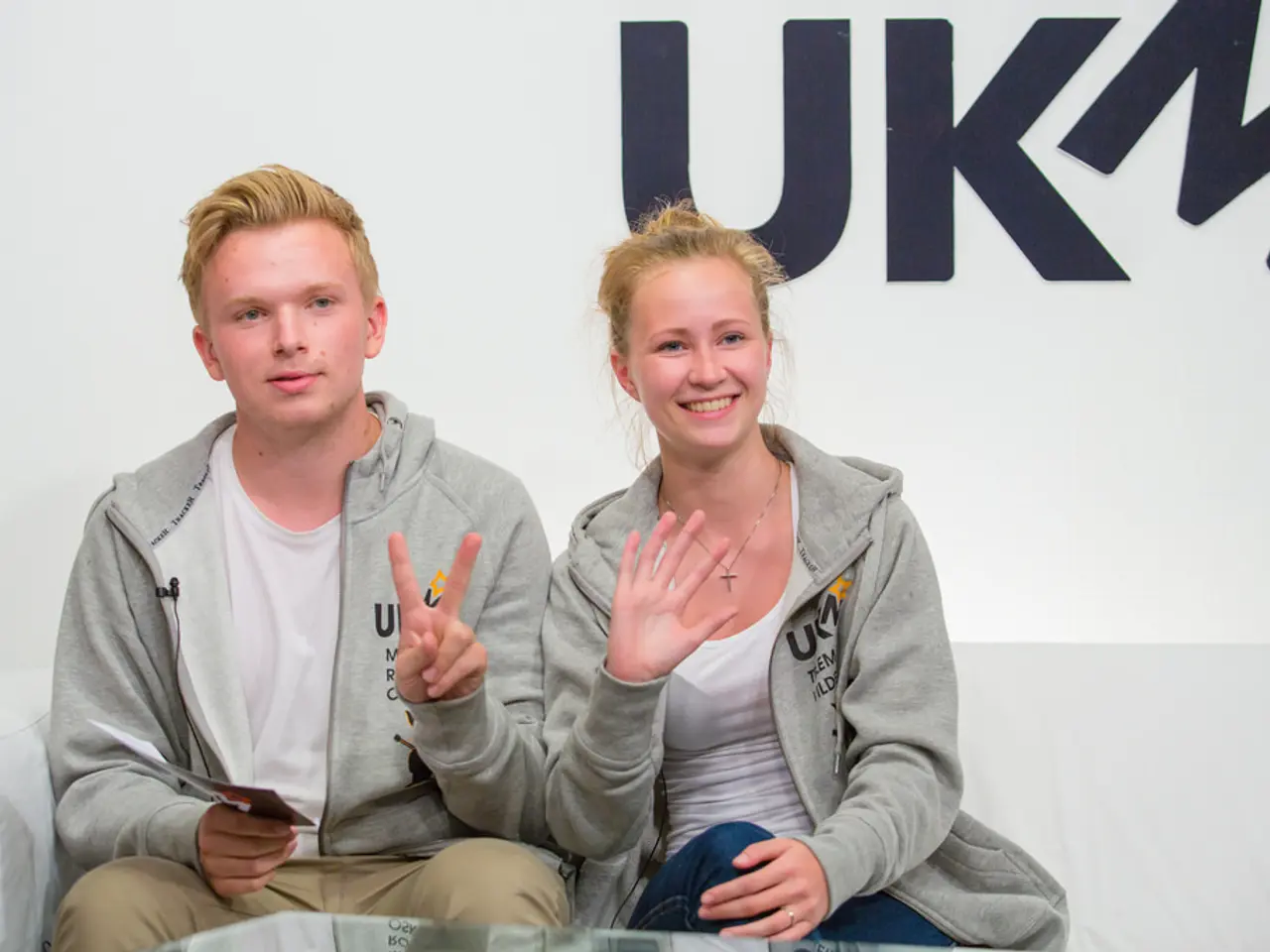Apprenticeship Opportunities Grabbed by College Students
Notre Dame College students are reaping the benefits of degree apprenticeships, which offer a unique opportunity to earn a full bachelor's or master's degree while gaining practical work experience and receiving a salary. This approach, supported by employer funding and government apprenticeship levy schemes, provides a cost-effective alternative to traditional university degrees.
Elijah Gatewood-Skeete, a student at Notre Dame College, is one such success story. After resitting his Maths exam in Bristol and achieving the required grade, he was able to start his apprenticeship on the 9th of September. Gatewood-Skeete went through a rigorous selection process, including a Zoom interview, and impressed the company with his computer-aided design work, securing a place on a highly competitive degree apprenticeship with Rolls Royce.
Notre Dame's students progress to higher and degree level apprenticeships each year. Some students start on a level 3 apprenticeship (equivalent to A-levels) and work their way up to degree level, with companies like Plexus Law, Connect Housing, Hallam Solicitors, and the NHS. Others, like Gatewood-Skeete, have been offered places on digital and technology solutions degree apprenticeships with FDM, or digital degree apprenticeships with Cox Automotive.
The benefits of degree apprenticeships are clear. Students earn a degree (Level 6 for bachelor’s or Level 7 for master’s) at no personal cost as tuition and associated study expenses are covered by the employer. They also receive a salary while studying, which helps with living costs and avoids student loans. Furthermore, degree apprenticeships provide students with direct workplace experience and skills development integrated with academic learning, often through practical assignments tied to their employer’s business.
Requirements for participation typically include meeting eligibility criteria such as residency requirements and employment by the sponsoring employer for the apprenticeship duration, as specified in government funding rules. Apprentices must also commit to a schedule that includes approximately 20% off-the-job learning time, supported by the employer, to focus on formal study and development. Evidence of eligibility and employment status to qualify for funding, including proof of identity, residency, age, and contract confirmation, is also required. Apprentices must not be enrolled in conflicting funded educational programs such as another degree or a sandwich placement.
The college Careers Department offers a bespoke programme of information, advice, and guidance for students not planning to attend a traditional university. This support ensures that students like Elijah Gatewood-Skeete can navigate the competitive apprenticeship application process and secure places on highly sought-after programmes.
Notre Dame's students are also finding opportunities in sectors beyond traditional trades. A Chartered Management degree apprenticeship with Morrisons, an Engineering degree apprenticeship with ENGIE Fabricom, and a Regeneration Officer degree apprenticeship with Leeds City Council are among the opportunities available to students. Moreover, Notre Dame's students have been offered places on a Level 7 (equivalent to a master's degree) Solicitor apprenticeship with AWB Charlesworth Solicitors via BPP / CMS LLP (international law firm), and a Quantity Surveying degree apprenticeship with RBA (Richard Boothroyd & Associates Ltd).
In digital sectors, Notre Dame's students have been offered places on a Digital and Marketing higher apprenticeship with Ascensor, and a Digital degree apprenticeship with Cox Automotive. These opportunities provide students with the chance to gain valuable skills in growing industries, while earning a degree and receiving a salary.
In conclusion, degree apprenticeships offer a debt-free alternative to university, involving 80% employment, 20% study, and further work during evenings and weekends. Notre Dame College students’ experiences reflect these benefits, demonstrating how degree apprenticeships provide a cost-effective alternative to traditional university degrees by combining academic study with paid employment supported through employer funding and government apprenticeship levy schemes.
- Elijah Gatewood-Skeete, a Notre Dame College student, secured a place on a digital and technology solutions degree apprenticeship with FDM, demonstrating how the college's students benefit from opportunities in various sectors, such as personal-finance, education-and-self-development, and career-development.
- Notre Dame College students regularly progress to higher and degree level apprenticeships in diverse fields, including Engineering and Regeneration Officer, to gain practical work experience and develop skills while earning a salary, enhancing their job-search prospects and future career growth.
- The college's Careers Department provides a tailored programme of advice and guidance for students planning alternative paths to university, ensuring they acquire essential skills in areas like skills-training, job-search, and interview preparation, positioning them successfully in the competitive apprenticeship landscape.




